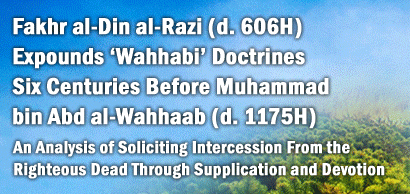Just upon reading the alleged diaries, a person with the least amount of intelligence can see it as a propaganda piece. The entire tone and sentiment reveals that this was written as a mini-novel, a story with a clear agenda of supporting the Ottoman state. The first mention of the alleged Hempher and his diary was in Mir'at al-Haramayn, a five volume work by Ayyub Sabri Pasha (d. 1890H) written in 1888CE. Strong political motivation existed for someone to write a forgery like this, and it has been opined by Bernard Haykel (Professor in Near Eastern Studies, Harvard University) that this was likely written by Ayyub Sabri Pasha himself as anti-'Wahhabi' propaganda, Haykel said:
 The Iraqi document echoes a well-known Turkish conspiracy theory - probably fabricated by one Ayyub Sabri Pasha - which claims that the British sought to weaken the Ottoman empire by creating the Wahhabi movement. The British sought to sow dissension among Muslims and the wahhabis obliged by anathemizing (takfir) the Ottomans and making licit rebellion and the waging of warfare against the Sultan in Istanbul.
The Iraqi document echoes a well-known Turkish conspiracy theory - probably fabricated by one Ayyub Sabri Pasha - which claims that the British sought to weaken the Ottoman empire by creating the Wahhabi movement. The British sought to sow dissension among Muslims and the wahhabis obliged by anathemizing (takfir) the Ottomans and making licit rebellion and the waging of warfare against the Sultan in Istanbul.
There is no independent record or proof of the existence of this imaginary figure called Hempher. The unknown and alleged figure, Hempher, claims he met Muhammad bin Abd al-Wahhaab in 1713CE in Basrah, who allegedly spoke Turkish and Persian (in addition to Arabic) and appeared as a student of Islamic knowledge. This is strange because the birth of Ibn Abd al-Wahhaab is established as 1703/1704CE (1115H), making him only 9-10 years old at the time. Aside form performing Hajj, Ibn Abd al-Wahhab never left Najd until he was just short of twenty years old in 1722CE, as is mentioned by the historians such as Ibn Bishr and Ibn Ghannaam who both wrote histories of Najd at the time (18th century).
The unknown and alleged figure, Hempher, claims that Shaykh Ibn Abd al-Wahhaab began openly preaching in 1143H (1730H) at the age of 27 years, when all researches and historians are agreed his open call at Huraymalah took place in 1153H (1740H), and then moved to al-Dir'iyyah. The unknown and alleged figure, Hempher, is very careful not to mention dates of his alleged activities in allegedly recruiting Ibn Abd al-Wahhaab. There are only two explicit mentions of dates 1710CE and 1730CE. The avoidance of dates [diaries are supposed to have dated entries or at least explicitly mention dates of events!] may have been to avoid later detection of the forgery by not allowing or making very difficult a cross-reference with the established biographical accounts of Shaykh Ibn Abd al-Wahhaab and the general history of that region. However, despite that, the only two times dates are mentioned, they are both incorrect, and this is sufficient to prove the document a forgery.
The unknown and alleged figure, Hempher, imputes many things to Shaykh Ibn Abd al-Wahhab which when contrasted to the actual writings and teachings of Ibn Abd al-Wahhaab are plain, flat, discrepancies. What he imputes of immorality (when Ibn Abd al-Wahhab was in Basrah) and the likes is pure slander and fabrication, the intent of which is to rile up the ignorant, unintelligent amongst the common-folk, and there is no need to even go there and address those matters. As for the claim that he was supportd and helped by the British, there was no British presence in that region in the mid-18th century. Their interests in the region came much later, more than a century afterwards, indicating that the Hempher forgery is out of tune with historical facts and dates. Also, the unknown and alleged figure, Hempher, claims:
 ...According to Muhammad of Najd, there was no reason for Sunnites to adapt themselves to one of the four madhhabs; he would say, "Allah's Book does not contain any evidence pertaining to these madhhabs."
...According to Muhammad of Najd, there was no reason for Sunnites to adapt themselves to one of the four madhhabs; he would say, "Allah's Book does not contain any evidence pertaining to these madhhabs."
This is known to be plainly false by looking at the writings of Shaykh Ibn Abd al-Wahhaab who does not dismiss the four schools of thought. In many of his writings and letters, the Shaykh argues against his adversaries that since he is following what is established in the Hanbali madhhab, then there is no ground for criticizing or rejecting him and those with him, since they are within the confines of what is found amongst the four schools of thought. Refer to his letter to Shareef Ghaalib in 1204H (see here) and refer to these articles from Hanbali jurists who came before Ibn Abd al-Wahhab (see here, here, here, and here), nay even jurists of other schools, such as Malikis (see here and here) and we have yet to bring much more from the four schools of jurisprudence to show that Ibn Abd al-Wahhaab is supported by all of them, in creed and in monotheism.
There is much more than this. However, since this type of sensationalist propaganda is consumed only by dumb animals, or unscrupulous writers diseased of heart who are happy to employ such propaganda to fit in with their preconceived notions and are not interested in proper research and investigation, it is best to leave them to their own devices and not waste more time than what is necessary. This much is sufficient. This is because clear dishonesty can be seen when this forgery is promoted on certain (Sufi, Ash'ari) blogs and forums with carefully stated words such as "it's an interesting read in any case...", "you make your own mind up if this is genuine or not..." when these people know for sure inside their souls that this forgery does not stand up to the slightest of scrutiny, but it is the vain following of lusts and desires and the pure hatred of a people which makes them swerve from abiding by the justice which Allaah commanded them with and from stating a clear unequivocal truthful word, that it is indeed a forgery and should be thrown in the dustbin. Their affair is with Allaah who knows the deception of the eyes and what the hearts conceal, all of which wil be brought out, exposed and forced to be accounted for...
 Misconceptions
Misconceptions



 The Iraqi document echoes a well-known Turkish conspiracy theory - probably fabricated by one Ayyub Sabri Pasha - which claims that the British sought to weaken the Ottoman empire by creating the
The Iraqi document echoes a well-known Turkish conspiracy theory - probably fabricated by one Ayyub Sabri Pasha - which claims that the British sought to weaken the Ottoman empire by creating the 








